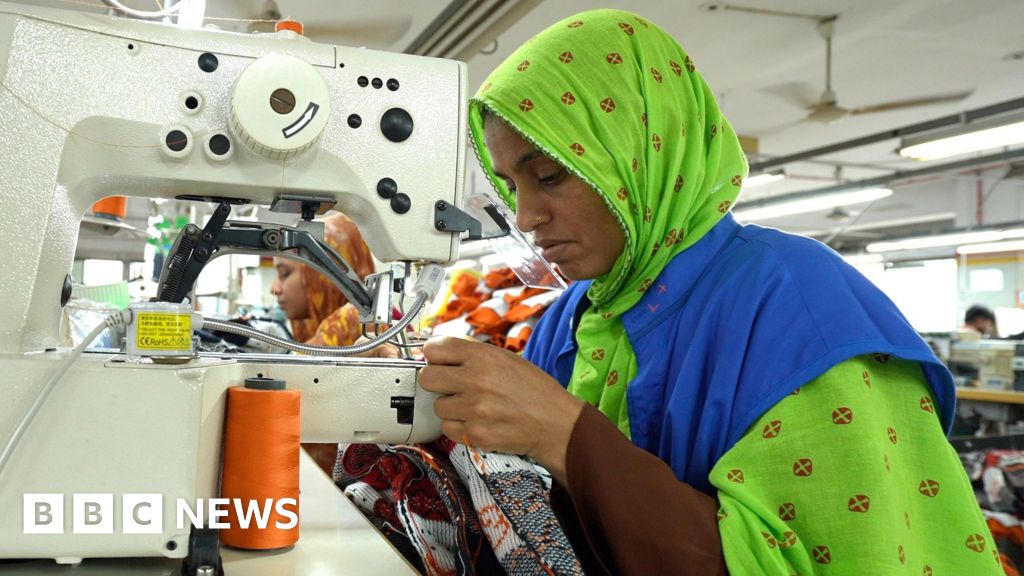Mahaburbur Rahman, whose family founded clothing manufacturing firm Sonia Group two decades ago, points out that the country’s falling reserves of foreign currencies alone are enough to dent confidence.
“They are concerned about how we will pay for imports of yarn from India and China if we don’t have enough dollars. Many of them are not even able to come to Bangladesh anymore to place new orders because they aren’t getting travel insurance,” Mr Rahman says.
But Bangladesh has a bigger problem at hand – the protests that ousted Ms Hasina were driven by students who were frustrated over the lack of well-paying jobs and opportunities.
While the clothing factories may have created millions of jobs, they don’t pay well. Some factory workers who spoke to the BBC said they struggled to survive on pay that was barely half the national minimum wage, which meant they were forced to take out loans to feed their children.
Many of them joined the student-led protests in recent months to demand better pay and conditions.
“We will settle for nothing less than a doubling,” union leader Maria said. “Wages have to reflect the increase in cost of living.”
The student protesters, though, are calling for a more radical shake-up of the jobs market.
Abu Tahir, Mohammad Zaman, Mohammad Zaidul and Sardar Armaan were all part of the demonstrations.
All unemployed for between two and five years, they tell the BBC that they are keen to work for the private sector but don’t feel as if they are qualified for the jobs that are available.
“[My parents] hardly understand how competitive the job market is. To be unemployed is a major source of pressure in my family. I feel belittled,” Mr Zaman says.
“We just get a degree, we are not getting the right skills,” says Mr Zaidul.
“The new adviser is an entrepreneur himself though, so we all feel more hopeful he’ll do something about this,” he adds, referring to the country’s interim leader, Muhammad Yunus. Mr Yunus won a Nobel Peace Prize for his pioneering work in micro loans.

